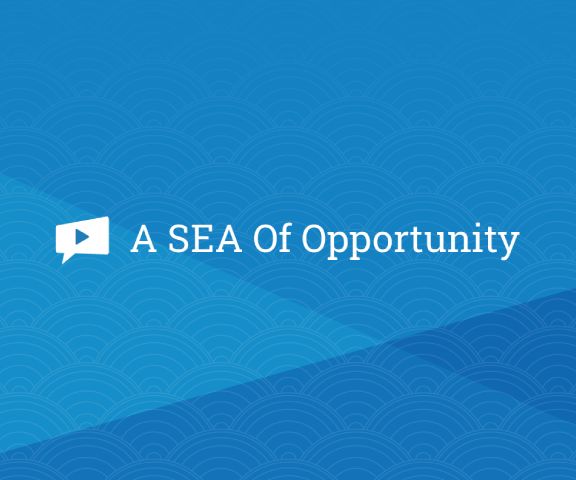Learn how to navigate diverse business opportunities in Southeast Asia
From consumer and supply chain insights, to innovation and startup trends, check out this five-part webinar series to learn more.

COVID-19 has forced businesses all over the world to respond with innovative solutions born of necessity.
“We cannot wait for the lockdown to be over. We have to do something, even though the solution may not be perfect,” asserts Ms Aireen Omar, President of AirAsia Digital, the digital venture arm of AirAsia Group.
She was speaking at a recent webinar organised by the Singapore Economic Development Board, joining other business leaders to discuss how companies in Southeast Asia (SEA) should embrace digitalisation and innovate for the new world.
The full panel line-up:
Embrace digital disruption as an impetus for innovation
Accelerated digital transformation is disrupting industries and blurring lines between sectors as diverse as airlines, logistics, and banking.
"It is not about having the best plan and being prepared. Winners are the ones with the agility to react."
Mr Fabio Vacirca,
Market Unit Group Lead for Australia, New Zealand, Southeast Asia, India, Africa, and Middle East,
Accenture
Companies embracing disruptive technologies can reach digitally enabled consumers, particularly in SEA, home to a fast-growing user base. “SEA is where you will see the most amount of leapfrogging,” notes Yoma’s Mr Melvyn Pun.
For instance, Myanmar’s population has skipped tech adoption stages, leaping from unbanked to formal credit and cash-based to digital transactions in a short time. Such rapid adoption drives demand for digital services, explains Mr Pun. Yoma, for instance, saw transactions on its e-wallet application Wave Pay jump 800 per cent between March and May 2020.
With demand for digital options surging, easing transitions online has become a priority. In banking, DBS supports complete ecosystem digitalisation through its application programming interface (API) platform, with over 200 APIs made available for fintech brands and software developers, accelerating the bank’s digital impact.

From consumer and supply chain insights, to innovation and startup trends, check out this five-part webinar series to learn more.
Build well-rounded talent with a growth mindset
The pandemic’s unprecedented challenges are prompting companies to rethink talent deployment and development too.
Ms Omar shares that with 80 per cent of AirAsia’s crew members grounded, the airline responded swiftly by redeploying employees to roles in merchant sourcing, enterprise outreach, and home deliveries, complementing the service, logistics, and finance businesses of its AirAsia Digital arm. She adds that AirAsia is also actively developing capabilities by reskilling baggage handlers and cabin crew in areas such as data analytics and cybersecurity at the AirAsia Google Cloud Academy.
“The most important skillsets in the innovation age are the right kind of mindset and attitude of openness.”
Ms Aireen Omar
President of AirAsia Digital
AirAsia Group
Beyond technical abilities, soft skills are increasingly being valued amidst trends in artificial intelligence and automation. Diverse talents in social sciences and philosophy help align innovation with organisational purpose, generating more effective responses during crises. “We need adaptability, nimbleness, capacity to connect the dots, and horizontal thinking,” affirms DBS’ Mr Piyush Gupta.
A broader shift towards life-long learning also future-proofs employees and companies. Mr Gupta uses a banking analogy to describe this shift: “In the past, the model was to fill up your education bank in the first few years and withdraw from it in the next 60 years. Now, we need to refill the bank every five years.”
Leverage SEA’s dynamic ecosystems
With over half of Southeast Asians aged under 30, the region’s youthful population has a growing appetite for digital solutions and new innovations. Surging regional demand draws SEA’s consumption markets and supply chains closer together with stronger cross-border exchanges of products, services and people.
Mr Gupta notes, “SEA is unusual – it integrates at night when governments are asleep. Integration is driven by consumption, companies and people-to-people exchanges.”
Fuller integration enables companies to create regional brands, and innovations can be easily tested, scaled and adapted for regional adoption from one location.
Singapore stands out as a choice destination for regional headquarters, with a quality talent pool that helps companies strengthen their digital capabilities. “In our quest to find talent to build our data-driven spaces, a large number of cyber experts, data scientists and engineers seem to be based in Singapore,” notes AirAsia’s Ms Omar.
For businesses investing in innovation, Singapore also offers strong regulatory and technical support, scoring top marks for innovation in Asia.
“At a more fundamental level, there is a need for regulatory support to allow innovations to happen. Singapore does this well, whether as a sandbox or in its thoughtful approach to dynamically allow things to thrive for entrepreneurship.”
Mr Melvyn Pun
Chief Executive Officer
Yoma Strategic Holdings
With Singapore as a regional gateway, there are opportunities for synergy, observes Yoma’s Mr Pun: “Singapore can play a role as not just as a competitor but a collaborator for mutual benefit.”
Deepening regional relationships could help SEA rebuild sustainably, opines Mr Pun: “ASEAN needs to hold together, with Singapore as the gel. The bloc has so much to learn from each other.”
Innovating for a better future
As the pandemic raises challenges on multiple fronts, innovation efforts from businesses are no longer just about growth but are about survival too. On digital transformation, Mr Pun predicts that “companies who don’t transform will fall behind”.
“One of the biggest takeaways of COVID-19 is the acute realisation of the need to rethink engagement and equilibrium with the society [...] Understanding that it’s going to be a new world, whether in environmental or social governance, you have to up your game and respond quickly.”
Mr Piyush Gupta
Chief Executive Officer
DBS Bank